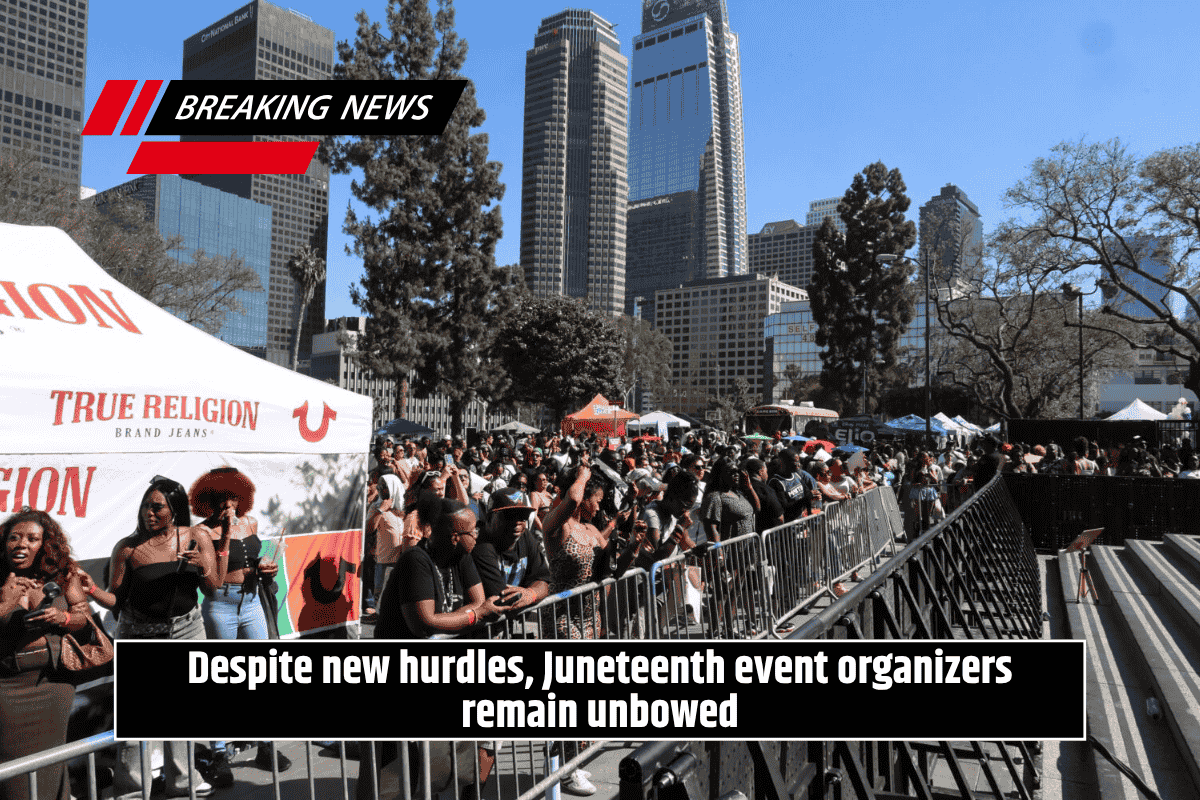Juneteenth, observed annually on June 19th, marks the day in 1865 when U.S. Army troops arrived in Galveston, Texas, to inform some of the last enslaved Americans that they were free. This moment came more than two years after President Abraham Lincoln issued the Emancipation Proclamation on January 1, 1863, declaring the freedom of all enslaved individuals in Confederate states.
Juneteenth has since evolved into a significant cultural observance that celebrates freedom, resilience, and the African American journey.
Adjusting to the Climate: A More Cautious Approach
This year, Juneteenth celebrations across the United States faced new challenges amid a politically and racially charged environment. Some cities took a more cautious approach to their planned events, considering safety and the current tensions in the country.
In Bend, Oregon, organizers of the annual Juneteenth festival decided to take a different approach. Kenneth Adams, one of the festival planners, described the situation as “cautious.” He emphasized the importance of safety, noting the heightened concerns given the national climate.
As a result, the organizers decided to cancel the public event initially planned in a park. However, another group revived the event, hosting a smaller, indoor celebration to ensure everyone’s safety.
Decisions Affecting Juneteenth Events in Other States
In West Virginia, a controversial decision by Gov. Jim Justice to remove Juneteenth as a paid holiday for state employees sparked disappointment among organizers. Ray Whiting, who has helped plan the annual Juneteenth parade and festival in Charleston for the past four years, expressed his frustration with the governor’s decision.
However, rather than canceling the event, Whiting and the team rescheduled the parade to Friday, allowing citizens to celebrate without missing out on the festivities.
In Denver, Norman Harris has been organizing the Juneteenth Music Festival since 2012. This year, the festival was scaled back from two days to just one. Harris pointed out that several corporate sponsors, who had supported the festival in past years, either reduced or withdrew their backing.
Despite these setbacks, Harris was determined to continue the tradition, relying on support from individual donors to keep the celebration going. He described the event as “a cultural treasure chest” where people could immerse themselves in Black culture and celebrate Black excellence.
Nashville’s Biggest Year Yet
In Nashville, organizers of the Juneteenth615 festival shared that this year was the biggest celebration they had ever had. Willie Sims, also known as Big Fella, emphasized that skipping the celebration was never an option for their community. He said, “So everybody, what if they cancel Juneteenth? I’m like, you can’t cancel Juneteenth.”
Sims highlighted that communities have been celebrating Juneteenth since 1866, and any attempts to cancel it would only increase awareness and interest in the holiday. For Sims and others, Juneteenth remains an essential moment to honor the history of freedom and to uplift African American culture.
Despite challenges in certain regions, Juneteenth celebrations across the country continue to thrive, with communities coming together to honor the legacy of freedom and resilience.
From cautious, smaller events to larger festivals, the spirit of Juneteenth remains alive, showing that even in times of adversity, communities will continue to celebrate and elevate Black culture and history.
